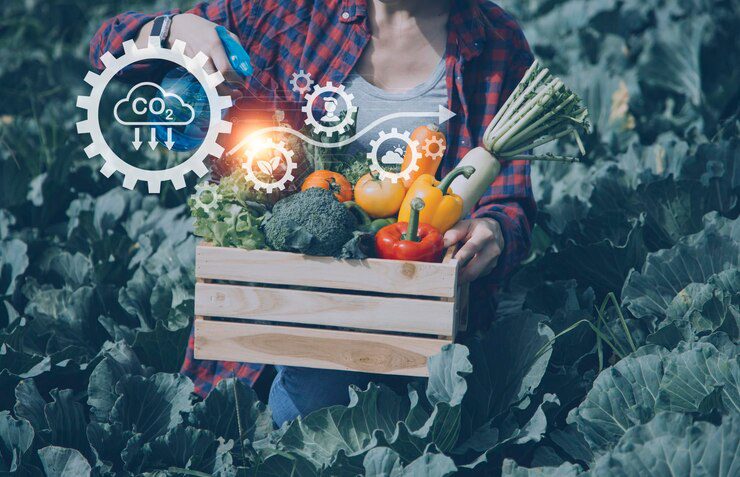Our planet’s a busy kitchen, and feeding its ever-growing population is no small feat. But the current menu of food production practices is leaving a hefty carbon footprint. That’s where sustainable food production comes in – a hot topic with some seriously innovative solutions brewing.
From Farm to Famine: The Challenges of Feeding the Future
Let’s face it, the “business as usual” approach to agriculture just isn’t cutting it anymore. Here’s a taste of the challenges we’re facing:
Land Crunch: Our arable land is shrinking faster than a week-old birthday cake. We need to find ways to grow more food with less space.
Water Woes: Water is the lifeblood of agriculture, but climate change is turning up the heat on this precious resource. We must be more strategic in our utilization of it.
Climate Change Chaos: Extreme weather events are wreaking havoc on crops, disrupting yields, and leaving farmers scrambling. We need resilient food systems that can weather the storm (literally).
Sustainable Food Solutions on the Rise
The good news is, that brilliant minds are whipping up some innovative solutions for sustainable food production. Here are a few trending dishes on the menu:
Precision Agriculture: Think of it as farming with a side of big data. Precision agriculture utilizes technology like sensors and drones to collect real-time data on soil health, water usage, and crop growth. This allows farmers to target resources more precisely, reducing waste and maximizing yields.
Vertical Farming: Vertical farms are basically skyscrapers for growing food. These indoor controlled environments use hydroponics (growing plants without soil) and LED lighting to produce crops year-round, all with a minimal footprint. Talk about a game-changer!
Urban Agriculture: Cities are sprawling, but rooftops and unused spaces can be transformed into urban farms. Think community gardens on steroids! This not only provides fresh, local produce but also promotes community engagement and green spaces in concrete jungles.
Regenerative Agriculture: This approach focuses on restoring the health of our soil, the foundation of all food production. Regenerative practices like cover cropping and no-till farming help improve soil fertility, increase water retention, and even sequester carbon from the atmosphere. It’s a win-win for the planet and our plates.
Beyond the Farm: Innovative Solutions for a Sustainable Food Chain
Sustainable food production isn’t just about what happens on the farm. Here are some other innovative ways we’re rethinking our food systems:
Food Waste Warriors: Roughly one-third of all food produced globally gets wasted. Yikes! Thankfully, innovative solutions like food banks, apps that connect restaurants with surplus food to hungry customers, and upcycling initiatives are tackling this major issue.
Alternative Proteins: Meat production has a hefty environmental impact. Enter alternative proteins like plant-based burgers and lab-grown meat. These innovative options are offering delicious, sustainable alternatives to traditional meat sources.
The Future of Food: A Collaborative Effort
The development of sustainable food production solutions requires a multi-pronged approach. Farmers, scientists, policymakers, and consumers each hold a part to contribute. Here’s what we can do:
Support sustainable farmers. Seek out farmers’ markets and local producers who prioritize sustainable practices. Reduce food waste. Organize your meals, purchase solely what’s necessary, and innovate with leftovers. Embrace innovation. Be open to trying new things, like alternative proteins, and support companies pushing the boundaries of sustainable food production.
Conclusion
The future of food is on our plates, and it’s up to us to make it a sustainable one. Sustainable food production isn’t just a fad; it’s a necessity. By embracing innovation, collaborating across sectors, and making conscious choices, we can ensure a future where everyone gets a delicious, nutritious meal without costing the Earth. So, let’s ditch the unsustainable practices and dig in to a menu brimming with innovative solutions for a healthy planet and a well-fed future.







